Addictions
‘Our Liberal Government Is Acting Like A Drug Lord’: A Mother’s Testimony
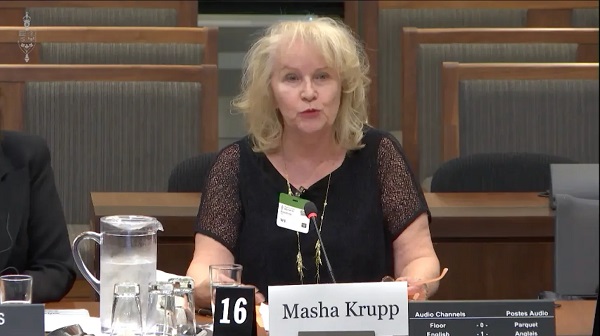
By Adam Zivo
“As soon as [my son] was put on safe supply, he started diverting his safe supply” Mom tells Parliament safer supply isn’t working
“The whole purpose of the safer supply program was to divert addicts from using harmful street drugs, but that’s not happening,” testified Masha Krupp, an Ottawa-based mother, at the House of Commons Health Committee last week. Exhausted and blunt, she described how her son has, in the past, diverted his “safer supply” drugs to the black market and how she has personally witnessed widespread diversion, by other patients, outside the clinic her son attends.
Safer supply programs distribute free addictive drugs – typically hydromorphone, a heroin-strength opioid – under the belief that this stabilizes addicts and dissuades them from consuming riskier street substances. Addiction experts and police leaders across Canada, however, say that recipients regularly divert these taxpayer-funded drugs to the black market, fueling new addictions and gang profits.
The Liberals and NDP have denied that widespread safer supply diversion is occurring, despite ample evidence to the contrary – but Krupp’s lived experiences underline the folly of their willful blindness.
“As soon as he was put on safe supply, he started diverting his safe supply,” she testified. “You’ve got drug dealers – I know this for a fact through my son; I’ve seen it – they will come to your home, 24/7, you can call two in the morning. They take your hydromorphone pills.”
According to Krupp, her son’s addiction issues have not improved despite him being enrolled in a safer supply program for more than two years. He still uses fentanyl and crack cocaine, which led to yet another overdose just last month, she said, adding that diversion and a lack of recovery-oriented services contribute to his instability.
“The Dilaudid (brand name hydromorphone) is a means of currency for my son to continue using crack cocaine – so it’s not safe, because he’s still using unsafe street drugs,” she said in parliament.
Krupp further explained that, on multiple occasions, she witnessed and photographed patients selling their safer supply in front of the clinic where her son has been a patient since June 2021. The transactions were not subtle: she could see them counting and exchanging white pills.
Over time, Krupp corroborated these observations by acquainting herself with some of these patients, who would admit to selling their safer supply: “I get to know all these people that are diverting and using right in front of the clinic, in front of all the tourists, parents walking by with kids.”
She believes that safer supply could have a role in addiction care if it were better regulated, but feels that the current model, where supervised consumption of these drugs is rarely required, is only “flooding the market, using taxpayers’ dollars, with lethal opiates…”
“It’s unsafe supply, in my view, as a mother with lived experience,” said Krupp. “Our Liberal government, right now, is acting like a drug lord.”
Her testimony was consistent with what was described in a CBC investigative report published last February, wherein Ottawa’s police officers confirmed that safer supply diversion is rampant.
One constable quoted in the story, Paul Stam, said that virtually anytime police would pull up to Rideau and Nelson street, where the clinic Krupp’s son attends is located, “they would observe people openly trafficking in diverted hydromorphone.” The officer further told the CBC that the “street is flooded with this pharmaceutical grade hydromorphone” and that there has been a dramatic, province-wide reduction in the drug’s blackmarket price – from $8-9 per 8-mg pill to just $1-2 today.
Although Krupp gave her parliamentary testimony last week, I interviewed her in July and kept her story private at her request – at the time, she worried that going public could interfere with her son’s attempts at recovery.
In the July interview, Krupp explained that, not only had her son told her that safer supply diversion is ubiquitous, she had also heard this from two acquaintances of his, who were also on the program: “The information that I’ve received is that the drug dealers have operations set up 24/7 across the city, buying legal dillies (the slang term for hydromorphone).”
She explained that she had been able to witness and document safer supply diversion because, on most Friday mornings, she would take her son to his clinic appointments and wait for him outside in her car. As she was often parked just two or three metres away from where many drug deals occurred, she had a line of sight into what was going on: clearly-identifiable dillies being handed over for other drugs.
She estimated that, by that point, she had cumulatively witnessed at least 25 safer supply patients engage in diversion.
“[Safer supply patients] would trade their dillies for fentanyl and/or crack cocaine and smoke or inject it right in front of me. They would just huddle in a corner. It’s all done very openly,” she said. “What I witness, to me, is a human tragedy on the sidewalks of the nation’s capital, with Parliament Hill eight or nine blocks away, and all the politicians sitting there singing praises to safer supply.”
She pushed back on the narrative, popular among Liberal and NDP politicians, that criticism of safer supply is conservative fear mongering and said that she had voted NDP in the past, and had even voted for Trudeau in 2015. Her disgust with safer supply was simply her “speaking from the heart as a mother.”
While harm reduction activists claim that safer supply is a form of compassionate care, Krupp vehemently disagreed: “How is it compassionate to fuel somebody’s addiction? How is it humane to keep a perpetual cycle of drug abuse and dependence?”
Subscribe to Break The Needle. Our content is always free – but if you want to help us commission more high-quality journalism, consider getting a voluntary paid subscription.
Addictions
Parliament votes for proposal recommending hard drug decriminalization
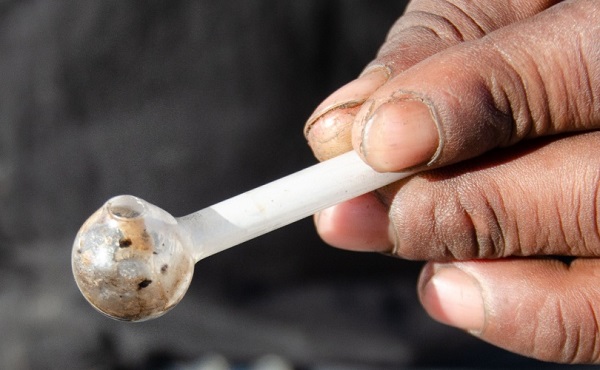
From LifeSiteNews
Canadian MPs have voted 210 to 117 in favor of a proposal to decriminalize simple possession of heroin, cocaine and all other illegal drugs across Canada despite the disastrous effects of lax drug policies already observed.
Canada may be one step closer to decriminalizing hard drugs as the majority of MPs voted in favor of a proposal recommending the move.
According to information published November 25 by Blacklock’s Reporter, MPs voted 210 to 117 in favor of a proposal recommending the decriminalizing of the simple possession of heroin, cocaine and all other illegal drugs across Canada. While the proposal is non-binding, it could point to how MPs would vote on a future bill seeking to augment the law.
“Why has it come to this?” Conservative MP Jacques Gourde, who opposes such a move, questioned. “We have reached the end of the road and nothing better lies ahead if we continue down this path.”
The recommendation, which received a House majority with only Conservative MPs voting against it, suggested “that the Government of Canada decriminalize simple possess of all illicit drugs.”
Prime Minister Justin Trudeau’s cabinet was noncommittal in their response to the suggestion, saying, “The government recognizes there are increasing calls from a wide range of stakeholders to decriminalize the simple possession of drugs as another tool to reduce stigma that can lead many to hide their drug use and avoid seeking supports including treatment.”
“The government is exploring policy approaches and a broader framework that would ease the impact of criminal prohibitions in certain circumstances,” the Cabinet continued.
The Trudeau government’s consideration of nationwide decriminalization comes despite drug-related deaths skyrocketing in the province of British Columbia after decriminalization was implemented there by the Trudeau government in 2023. In fact, the policy was considered so damaging by the left-wing controlled province that it had to ask to have certain aspects of the policy, such as the public use of drugs, rescinded earlier this year.
Other soft-on-drug policies have already been implemented by the Trudeau government, including the much-maligned “safer supply” program.
“Safe supply” is the term used to refer to government-prescribed drugs given to addicts under the assumption that a more controlled batch of narcotics reduces the risk of overdose. Critics of the policy argue that giving addicts drugs only enables their behavior, puts the public at risk, disincentivizes recovery from addiction and has not reduced – and sometimes even increased – overdose deaths when implemented.
The effects of decriminalizing hard drugs have been the source of contention throughout the country, as evidenced in Aaron Gunn’s documentary, Canada is Dying, and in U.K. Telegraph journalist Steven Edginton’s mini-documentary, Canada’s Woke Nightmare: A Warning to the West.
Gunn, who has since become a Conservative Party candidate, previously noted that his film shows clearly the “general societal chaos and explosion of drug use in every major Canadian city” since lax policies were implemented.
“Overdose deaths are up 1,000 percent in the last 10 years,” he said in his film, adding that “every day in Vancouver four people are randomly attacked.”
Addictions
BC Addictions Expert Questions Ties Between Safer Supply Advocates and For-Profit Companies

By Liam Hunt
Canada’s safer supply programs are “selling people down the river,” says a leading medical expert in British Columbia. Dr. Julian Somers, director of the Centre for Applied Research in Mental Health and Addiction at Simon Fraser University, says that despite the thin evidence in support of these experimental programs, the BC government has aggressively expanded them—and retaliated against dissenting researchers.
Somers also, controversially, raises questions about doctors and former health officials who appear to have gravitated toward businesses involved in these programs. He notes that these connections warrant closer scrutiny to ensure public policies remain free from undue industry influence.
Safer supply programs claim to reduce overdoses and deaths by distributing free addictive drugs—typically 8-milligram tablets of hydromorphone, an opioid as potent as heroin—to dissuade addicts from accessing riskier street substances. Yet, a growing number of doctors say these programs are deeply misguided—and widely defrauded.
Ultimately, Somers argues, safer supply is exacerbating the country’s addiction crisis.
Somers opposed safer supply at its inception and openly criticized its nationwide expansion in 2020. He believes these programs perpetuate drug use and societal disconnection and fail to encourage users to make the mental and social changes needed to beat addiction. Worse yet, the safer supply movement seems rife with double standards that devalue the lives of poorer drug users. While working professionals are provided generous supports that prioritize recovery, disadvantaged Canadians are given “ineffective yet profitable” interventions, such as safer supply, that “convey no expectation that stopping substance use or overcoming addiction is a desirable or important goal.”
To better understand addiction, Somers created the Inter-Ministry Evaluation Database (IMED) in 2004, which, for the first time in BC’s history, connected disparate information—i.e. hospitalizations, incarceration rates—about vulnerable populations.
Throughout its existence, health experts used IMED’s data to create dozens of research projects and papers. It allowed Somers to conduct a multi-million-dollar randomized control trial (the “Vancouver at Home” study) that showed that scattering vulnerable people into regular apartments throughout the city, rather than warehousing them in a few buildings, leads to better outcomes at no additional cost.
In early 2021, Somers presented recommendations drawn from his analysis of the IMED to several leading officials in the B.C. government. He says that these officials gave a frosty reception to his ideas, which prioritized employment, rehabilitation, and social integration over easy access to drugs. Shortly afterwards, the government ordered him to immediately and permanently delete the IMED’s ministerial data.
Somers describes the order as a “devastating act of retaliation” and says that losing access to the IMED effectively ended his career as a researcher. “My lab can no longer do the research we were doing,” he noted, adding that public funding now goes exclusively toward projects sympathetic to safer supply. The B.C. government has since denied that its order was politically motivated.
In early 2022, the government of Alberta commissioned a team of researchers, led by Somers, to investigate the evidence base behind safer supply. They found that there was no empirical proof that the experiment works, and that harm reduction researchers often advocated for safer supply within their studies even if their data did not support such recommendations.
Somers says that, after these findings were published, his team was subjected to a smear campaign that was partially organized by the British Columbia Centre on Substance Use (BCCSU), a powerful pro-safer supply research organization with close ties to the B.C. government. The BCCSU has been instrumental in the expansion of safer supply and has produced studies and protocols in support of it, sometimes at the behest of the provincial government.
Somers is also concerned about the connections between some of safer supply’s key proponents and for-profit drug companies.
He notes that the BCCSU’s founding executive director, Dr. Evan Wood, became Chief Medical Officer at Numinus Wellness, a publicly traded psychedelic company, in 2020. Similarly, Dr. Perry Kendall, who also served as a BCCSU executive director, went on to found Fair Price Pharma, a now-defunct for-profit company that specializes in providing pharmaceutical heroin to high-risk drug users, the following year.
While these connections are not necessarily unethical, they do raise important questions about whether there is enough industry regulation to minimize potential conflicts of interest, whether they be real or perceived.
The BCCSU was also recently criticized in an editorial by Canadian Affairs, which noted that the organization had received funding from companies such as Shoppers Drug Mart and Tilray (a cannabis company). The editorial argued that influential addiction research organizations should not receive drug industry funding and reported that Alberta founded its own counterpart to the BCCSU in August, known as the Canadian Centre of Recovery Excellence, which is legally prohibited from accepting such sponsorships.
Already, private interests are betting on the likely expansion of safer supply programs. For instance, Safe Supply Streaming Co., a publicly traded venture capital firm, has advertised to potential investors that B.C.’s safer supply system could create a multi-billion-dollar annual market.
Somers believes that Canada needs more transparency regarding how for-profit companies may be directly or indirectly influencing policy makers: “We need to know exactly, to the dollar, how much of [harm reduction researchers’] operating budget is flowing from industry sources.”
Editor’s note: This story is published in syndication with Break The Needle and Western Standard.
The Bureau is a reader-supported publication. To receive new posts and support my work, consider becoming a free or paid subscriber.
Dr. Julian M. Somers is director of the Centre for Applied Research in Mental Health and Addiction at Simon Fraser University. He was Director of the UBC Psychology Clinic, and past president of the BC Psychological Association. Liam Hunt is a contributing author to the Centre For Responsible Drug Policy in partnership with the Macdonald-Laurier Institute.
-

 C2C Journal1 day ago
C2C Journal1 day agoWhy the Trump Administration is Unlikely to Impose Import Tariffs on Canadian Oil and Natural Gas
-

 Addictions1 day ago
Addictions1 day agoParliament votes for proposal recommending hard drug decriminalization
-

 Alberta2 days ago
Alberta2 days agoNew website to explain changes coming to your auto insurance
-
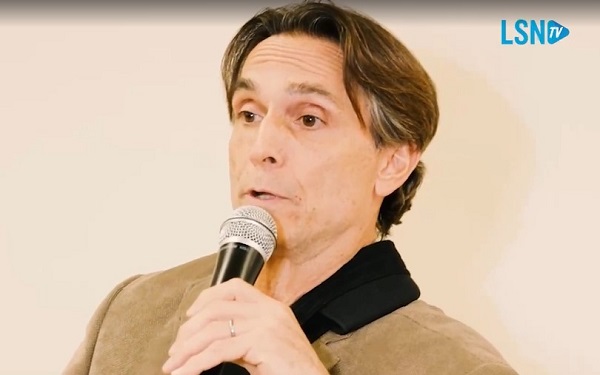
 COVID-191 day ago
COVID-191 day agoOntario court throws out Dr. Trozzi’s appeal after medical license revoked over COVID stance
-

 Alberta1 day ago
Alberta1 day agoProvince investing in support for financial literacy in schools
-
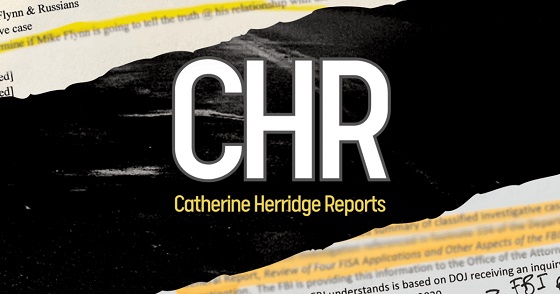
 Catherine Herridge2 days ago
Catherine Herridge2 days agoHow X And Joe Rogan Broke The Back of 60 Minutes
-
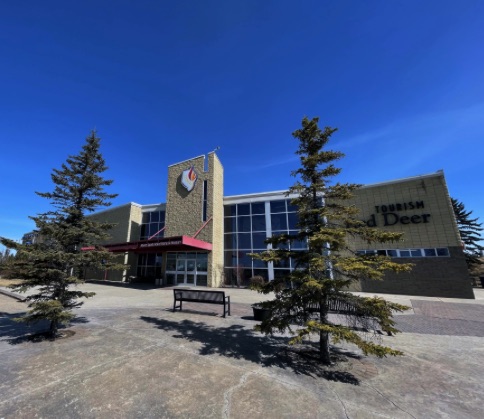
 Alberta Sports Hall of Fame and Museum1 day ago
Alberta Sports Hall of Fame and Museum1 day agoAlberta Sports Hall of Fame announces Class of 2025
-

 Agriculture2 days ago
Agriculture2 days agoSaskatchewan potash vital for world food








